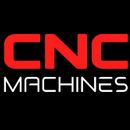How Calipers are Essential in CNC Production: Applications and Best Practices

How Calipers are Essential in CNC Production: Applications and Best Practices
In the realm of CNC (Computer Numerical Control) machining, precision is paramount. One of the most fundamental tools that contribute to achieving that precision is the caliper. Whether for measuring dimensions of a workpiece or ensuring tight tolerances, calipers play a critical role in the manufacturing process. This article explores the various types of calipers used in CNC production, their applications, the importance of precision, and best practices for using and maintaining them.
Types of Calipers Used in CNC
1. Digital Calipers
Digital calipers provide a direct reading on a digital display, making them easy to use and read. They offer a high degree of accuracy, typically within ±0.02 mm, and can switch between different measurement units (metric and imperial).
Applications:
- Measuring external dimensions, internal dimensions, and depths of workpieces.
- Ideal for quick measurements during CNC setup and part verification.
2. Vernier Calipers
Vernier calipers are a traditional measuring tool that consists of a main scale and a sliding vernier scale. While they require a bit more skill to read accurately compared to digital calipers, they can still achieve precise measurements (typically ±0.02 mm).
Applications:
- Used for detailed measurement tasks in CNC setups.
- Effective for measuring smaller components or intricate features where precision is key.
3. Dial Calipers
Dial calipers feature a dial gauge for measurement reading, combining analog mechanics with user-friendly design. They offer quick measurements and are typically accurate to ±0.02 mm.
Applications:
- Useful in environments where digital devices may be less durable.
- Often used for routine inspections and measurements of machined parts.
Importance of Precision in CNC Production
Achieving Tight Tolerances
Precision is crucial in CNC machining, as it directly impacts the quality and functionality of the final product. Calipers help ensure that the dimensions of the machined parts meet the specified tolerances, which can be critical in industries such as aerospace, automotive, and medical device manufacturing.
Ensuring Quality Control
Regular measurement with calipers allows for effective quality control throughout the production process. By verifying dimensions at various stages, manufacturers can identify and address issues early, reducing waste and rework. This not only saves time and resources but also enhances customer satisfaction by delivering products that meet exact specifications.
Best Practices for Using and Maintaining Calipers
1. Proper Handling
- Avoid Dropping: Calipers should be handled with care to avoid physical damage. Dropping them can cause misalignment, leading to inaccurate measurements.
- Clean Before Use: Ensure the measuring surfaces are clean and free of debris. Contaminants can affect measurement accuracy.
2. Regular Calibration
- Calibrate Frequently: Calipers should be calibrated regularly to ensure continued accuracy. Manufacturers should establish a calibration schedule based on usage frequency and industry standards.
- Use Calibration Standards: Utilize known standards for calibration to verify that the calipers are providing accurate measurements.
3. Store Properly
- Use Protective Cases: Store calipers in protective cases to prevent damage and contamination when not in use.
- Keep in a Controlled Environment: Store calipers in a controlled environment to minimize the risk of corrosion or damage from temperature fluctuations.
4. Take Care of the Measuring Edges
- Avoid Excessive Force: When measuring, apply only enough pressure to achieve contact without deforming the caliper's edges.
- Inspect for Wear: Regularly check the measuring jaws for wear or damage. Worn jaws can lead to inaccurate readings.
Conclusion
Calipers are essential tools in CNC production, playing a vital role in ensuring precision and quality throughout the manufacturing process. By understanding the different types of calipers and their applications, manufacturers can effectively utilize these tools to achieve tight tolerances and enhance quality control.
By following best practices for usage and maintenance, companies can ensure that their calipers remain accurate and reliable, ultimately contributing to the overall success of their CNC machining operations. In an industry where precision is paramount, the proper use of calipers can make all the difference in delivering high-quality products that meet customer expectations.


